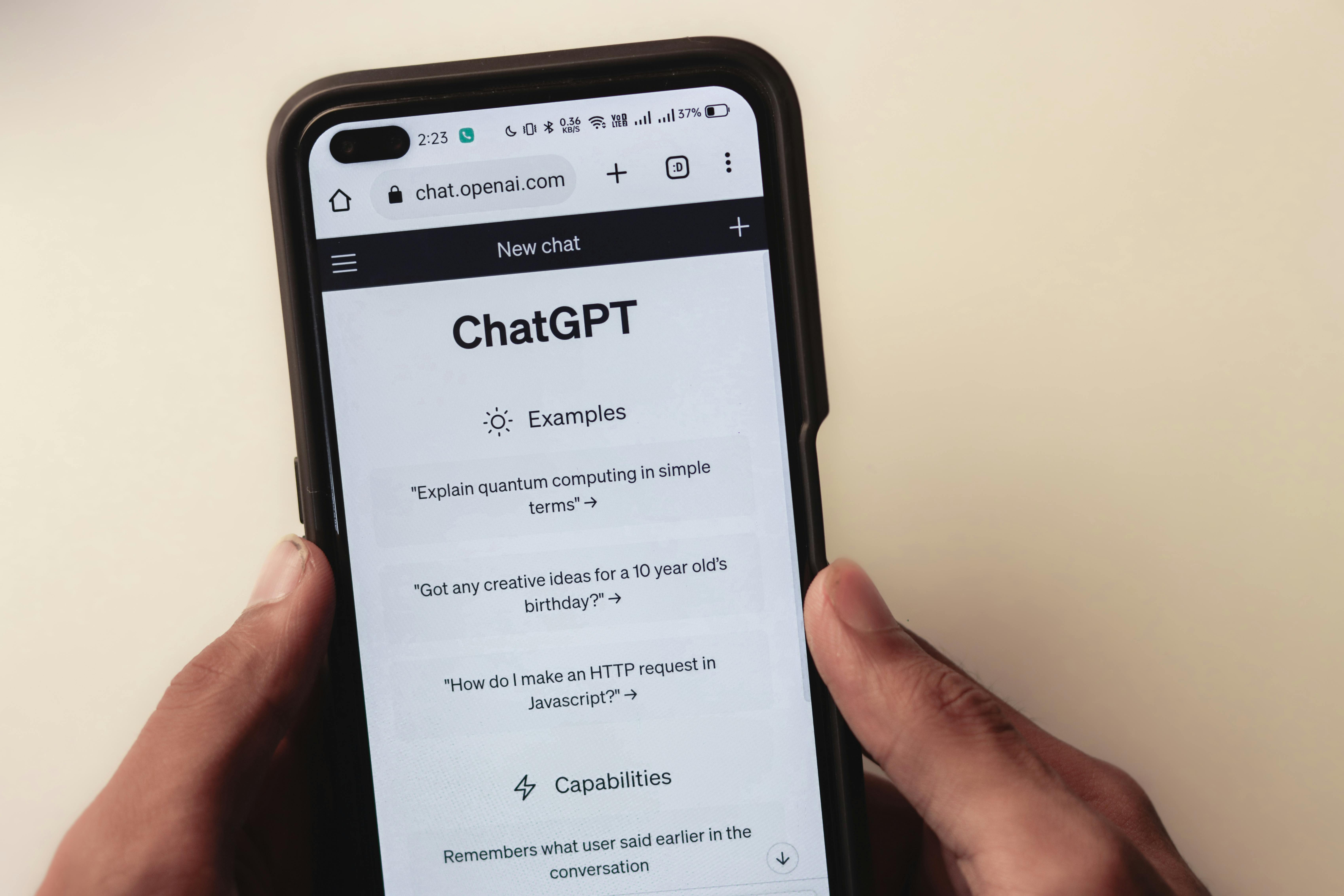How to Write SEO Content Using AI: A Comprehensive Guide

asdsad
dasd
How to Write SEO Content Using AI: A Comprehensive Guide
The landscape of content creation is rapidly evolving, and Artificial Intelligence (AI) stands at the forefront of this transformation. For businesses and marketers striving to enhance their online visibility, understanding how to write SEO content using AI is no longer a futuristic concept but a present-day necessity. AI offers unprecedented opportunities to scale content production, uncover deeper audience insights, and refine optimization strategies.
Leveraging AI effectively can mean the difference between merely keeping up and truly excelling in the competitive digital arena. These powerful tools can assist in everything from initial keyword research to crafting compelling narratives and ensuring your content resonates with both search engines and human readers. This guide will walk you through the essential strategies and considerations for harnessing AI to create high-quality, SEO-friendly content that drives results.
Understanding the Synergy Between AI and SEO
The relationship between AI and Search Engine Optimization (SEO) is increasingly symbiotic. AI doesn't replace the fundamental principles of SEO; instead, it augments and accelerates them. Traditional SEO relies on understanding search engine algorithms, user intent, and creating valuable content. AI provides sophisticated tools to perform these tasks with greater efficiency and precision.
AI algorithms can process vast amounts of data to identify patterns and trends that would be impossible for humans to discern manually. This includes analyzing search queries to understand nuanced user intent, identifying emerging keywords, and even predicting content performance. For instance, AI can help determine not just what users are searching for, but why they are searching for it, allowing for the creation of more targeted and relevant content.
However, it's crucial to remember that AI is a tool, not a complete replacement for human expertise. Strategic thinking, creativity, and a deep understanding of your specific audience and brand voice remain indispensable. The most successful SEO content strategies will involve a collaborative approach, where human marketers guide AI tools to achieve optimal outcomes. AI handles the heavy lifting of data analysis and initial drafting, while humans provide the critical oversight, refinement, and strategic direction.
Choosing the Right AI Tools for SEO Content Creation
Navigating the burgeoning market of AI tools for SEO content can be daunting. These tools vary widely in their capabilities, from specialized AI writing assistants to comprehensive SEO platforms with integrated AI features. Understanding the different types of tools available is the first step in making an informed choice.
Broadly, AI tools for content creation can be categorized into:
- AI Writing Assistants: These tools, like OpenAI's ChatGPT, Jasper, or Copy.ai, specialize in generating text based on prompts. They can help draft articles, blog posts, product descriptions, ad copy, and more.
- AI-Powered SEO Platforms: Tools such as Surfer SEO, Clearscope, or MarketMuse integrate AI to provide content optimization suggestions, keyword research, content brief generation, and competitive analysis.
- Keyword Research Tools with AI: Many traditional keyword research tools like Ahrefs and SEMrush are incorporating AI to offer more advanced insights, such as identifying keyword clusters, search intent, and question-based queries.
- AI Content Analysis and Editing Tools: Grammarly, ProWritingAid, and similar tools use AI to help refine content for grammar, style, readability, and tone, with some now offering SEO-specific suggestions.
When selecting an AI tool, consider factors such as its specific features and how they align with your content needs. Evaluate its ease of use, the quality of its output, and its ability to integrate with your existing workflows. Pricing models, which can range from free tiers with limited functionality to expensive enterprise subscriptions, will also be a significant consideration. It's often beneficial to test a few different tools through free trials or demos before committing.
Key Strategies for Leveraging AI in SEO Content Writing
Simply having access to AI tools isn't enough; you need effective strategies to integrate them into your SEO content workflow. By thoughtfully applying AI at various stages of content creation, you can significantly enhance both efficiency and effectiveness. Here are key strategies to consider:
- AI-Powered Keyword Research and Analysis: Move beyond basic keyword discovery. AI can help you uncover long-tail keywords, semantic variations, and question-based queries that reflect true user intent. Use AI tools to analyze competitor keyword strategies, identify content gaps, and understand the keyword difficulty landscape. This data-driven approach ensures your content targets the right audience with the right terms.
- Generating Content Ideas and Outlines with AI: Overcome writer's block and discover fresh content angles. AI can brainstorm relevant topics based on your core keywords, industry trends, or even competitor content. Furthermore, AI can help structure your content by generating detailed outlines, ensuring logical flow and comprehensive coverage of the topic. This provides a solid foundation for your writers, whether human or AI-assisted.
- Drafting Content with AI Writing Assistants: Utilize AI to generate initial drafts for blog posts, articles, or product descriptions. The key is to provide clear, detailed prompts that specify the target audience, desired tone, key messages, and any specific keywords to include. While AI-generated drafts can save considerable time, they should always be viewed as a starting point, not a final product.
- AI for Content Optimization and Refinement: Leverage AI to enhance the SEO-friendliness of your content. Many tools can analyze your text for keyword density, readability scores (like Flesch-Kincaid), meta description effectiveness, and internal linking opportunities. AI can also assist in checking for grammar, style consistency, and plagiarism, ensuring your content is polished and professional.
- Personalizing Content at Scale with AI: AI can analyze user data and behavior to help you tailor content to different audience segments. While full-scale dynamic content personalization can be complex, AI can assist in creating variations of content that speak more directly to specific user needs or stages in the customer journey, improving engagement and conversion rates.
- AI for Content Audits and Updates: Don't let your existing content become outdated. AI tools can help audit your content library to identify underperforming pages, content decay, or opportunities for updates. By analyzing current search trends and competitor performance, AI can suggest ways to refresh and optimize existing articles to improve their rankings and relevance.
Implementing these strategies requires a shift in mindset. Think of AI not just as a content generator, but as a powerful research assistant, an optimization engine, and a productivity booster. The goal is to integrate AI seamlessly into your existing SEO processes to amplify your team's capabilities.
Crafting Effective Prompts for AI Content Generation
The quality of content generated by AI is directly proportional to the quality of the prompts you provide. A vague or poorly constructed prompt will likely result in generic, unfocused, or irrelevant output. Mastering the art of prompt engineering is therefore essential for successfully using AI in SEO content writing.
An effective prompt acts as a detailed brief for the AI. It should clearly communicate your requirements and expectations. Key elements to include in your prompts are:
- Target Audience: Specify who the content is for (e.g., "beginners in digital marketing," "experienced software developers," "small business owners"). This helps the AI adjust its language, complexity, and examples.
- Desired Tone and Style: Define the voice of the content (e.g., "professional and informative," "casual and engaging," "technical and precise," "empathetic and supportive").
- Primary and Secondary Keywords: List the main keywords you are targeting, as well as any related semantic keywords or LSI terms that should be naturally incorporated.
- Content Format: Clearly state the type of content you need (e.g., "a blog post," "an introductory paragraph for an article," "a listicle," "a product review," "FAQ section").
- Specific Points to Cover or Questions to Answer: If there are particular subtopics, arguments, or questions you want the AI to address, include them in the prompt. Providing a rough outline can be very helpful.
- Desired Length or Structure: While AI might not always adhere strictly to word counts, giving an approximate length (e.g., "around 500 words," "a short paragraph") or desired structure (e.g., "introduction, 3 main points, conclusion") can guide the output.
- Negative Constraints: Sometimes it's useful to tell the AI what not to do (e.g., "avoid overly technical jargon," "do not mention specific competitor names").
For example, an ineffective prompt might be: "Write an article about AI in SEO." This is too broad.
A much more effective prompt would be: "Write a 1200-word blog post for marketing managers with 3-5 years of experience, explaining the benefits of using AI for keyword research in SEO. The tone should be professional yet accessible. Include sections on how AI identifies long-tail keywords, analyzes user intent, and helps in competitive keyword analysis. Focus on the primary keyword 'AI keyword research' and secondary keywords 'user intent analysis AI' and 'competitive keyword strategy AI'."
Experimentation is key. Try different phrasing, levels of detail, and structures in your prompts to see what yields the best results from your chosen AI tool. Keep a record of prompts that work well for specific types of content so you can reuse and refine them over time.
The Crucial Role of Human Editing and Fact-Checking
While AI can generate content with impressive speed and coherence, it is not infallible. AI-generated text must always undergo thorough human review and editing before publication. This step is non-negotiable if you aim to produce high-quality, accurate, and trustworthy SEO content.
Human editors bring critical thinking, nuanced understanding, and brand awareness that AI currently lacks. Key areas for human intervention include:
- Accuracy and Fact-Checking: AI models can sometimes "hallucinate" or generate plausible-sounding but incorrect information. It's vital to verify all factual claims, statistics, dates, and references, especially for content that requires expertise and authoritativeness.
- Originality and Plagiarism: While AI tools aim to produce original text, there's always a risk of generating content that is too similar to existing sources. Use plagiarism checkers and your own judgment to ensure uniqueness. More importantly, inject original thought and unique perspectives that AI cannot replicate.
- Tone, Style, and Brand Voice: AI might struggle to perfectly capture your specific brand voice or the subtle nuances of tone required for different contexts. Human editors must refine the text to ensure it aligns with brand guidelines and resonates appropriately with the target audience.
- Flow, Cohesion, and Readability: AI can sometimes produce text that is grammatically correct but lacks logical flow or is difficult to read. Editors should restructure sentences, improve transitions, and enhance overall clarity and engagement.
- Adding E-E-A-T (Experience, Expertise, Authoritativeness, Trustworthiness): Google prioritizes content that demonstrates E-E-A-T. Human expertise is crucial for adding genuine experience, insightful analysis, and authoritative perspectives that build trust with readers and search engines. This might involve incorporating real-world examples, case studies, personal anecdotes, or expert quotes.
- SEO Fine-Tuning: While AI can assist with initial optimization, a human SEO expert should review the content for strategic keyword placement, internal and external linking opportunities, meta tag optimization, and overall adherence to SEO best practices.
Think of AI as a highly skilled assistant that prepares the first draft. The human editor then acts as the senior strategist and quality controller, transforming that draft into a polished, valuable, and SEO-effective piece of content. This collaborative process ensures that you leverage the speed of AI without sacrificing quality or credibility.
Ethical Considerations and Avoiding AI Pitfalls
The integration of AI into content creation brings with it a set of ethical considerations and potential pitfalls that marketers must navigate responsibly. Building trust with your audience and adhering to search engine guidelines are paramount for long-term SEO success.
One primary concern is plagiarism and content originality. While AI tools are designed to generate unique text, they learn from vast datasets of existing content. It's crucial to use plagiarism detection tools and, more importantly, to add your own unique insights, analysis, and value to AI-generated drafts. Simply publishing raw AI output without significant human modification can lead to generic content that offers little new value.
Transparency regarding the use of AI in content creation is another evolving discussion. While there's no universal rule, consider whether disclosing AI assistance is appropriate for your audience and content type, especially if the content deals with sensitive topics or requires a high degree of personal expertise. The focus should always be on the quality and helpfulness of the content itself.
Over-reliance on AI can also be a pitfall. If AI is used as a crutch rather than a tool, it can lead to a decline in critical thinking and creativity within your content team. Encourage a balanced approach where AI handles repetitive tasks, but humans drive strategy, originality, and the nuanced understanding of your audience. Avoid creating content solely for search engines using AI, as this can result in low-quality, unhelpful material that ultimately harms your SEO efforts.
Google's stance on AI-generated content has evolved to focus on the quality and helpfulness of the content, regardless of how it's produced. Content created primarily to manipulate search rankings, whether by AI or humans, is discouraged. As stated by Google, their focus is on rewarding high-quality content that demonstrates E-E-A-T (Experience, Expertise, Authoritativeness, Trustworthiness). Therefore, if you use AI to help create genuinely helpful and original content for users, it can be perfectly acceptable. The key is to ensure AI is used responsibly and ethically, always prioritizing the user experience.
Regularly review guidelines from search engines and stay informed about best practices for AI in content creation. By proactively addressing these ethical considerations, you can harness the power of AI responsibly and build a sustainable SEO content strategy.
Integrating Artificial Intelligence into your SEO content strategy is no longer a futuristic aspiration but a practical pathway to enhanced efficiency, deeper insights, and greater scale. As we've explored, AI offers powerful capabilities in keyword research, content ideation, drafting, and optimization. When wielded strategically, these tools can significantly amplify your content creation efforts, allowing you to reach your audience more effectively.
However, the journey to mastering AI-driven SEO content is one of partnership, not replacement. The critical thinking, creativity, ethical judgment, and nuanced understanding of a human content creator remain indispensable. The most potent results emerge when human expertise guides AI's computational power, ensuring that the content produced is not only optimized for search engines but is also accurate, engaging, and genuinely valuable to your readers.
The landscape of AI and SEO is continually evolving. Embrace a mindset of continuous learning and experimentation. Test different tools, refine your prompting techniques, and adapt your workflows as new technologies and best practices emerge. By doing so, you can position yourself to leverage the transformative potential of AI, crafting SEO content that resonates, ranks, and drives meaningful results for your business well into the future. The key is to use AI thoughtfully, ethically, and always with the end-user in mind.

